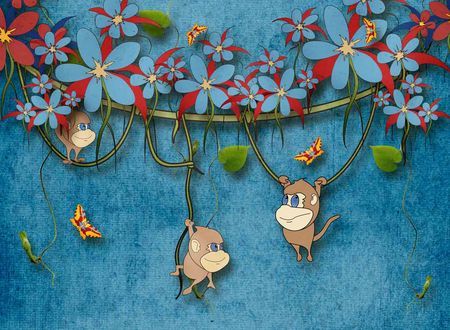I’ve often heard people say “The world is full of bad news.” It’s true; bad news does seem to be everywhere but that doesn’t mean good news doesn’t exist, it just doesn’t get nearly as much airtime. Bad news spreads like wildfire, but good news only reaches a few people and then seems to stop.
It’s because of Negativity Bias; the natural human tendency to focus on the bad side rather than the good.
It’s obvious if you think about it. Recall a time you received a compliment. Maybe a lover told you how beautiful you are or a stranger stopped you to compliment your smile. How did it make you feel? Happy, confident, pleased, inflated?
Now recall a time you were insulted. Maybe that same lover told you how selfish you were or a stranger in another car told you to f*ck off. How did you feel then? Outraged, furious, upset, dishonoured?
Now which memory evokes more emotion? I’d hazard a guess it was the insult, not the compliment. In fact, I’d go so far as to say if you received ten compliments in a day, but the day finished with one insult, you would think about the one insult more than the ten compliments.
Negativity Bias
Psychologists Rozin and Royzman outlined four main factors of negativity bias. We’ll stick with the compliment and insults example to demonstrate.
- Negative Potency- If one event is of equal positive magnitude as another is equally negative, you’re more likely to focus on the negative event.
So if you receive a compliment AND an insult, you’re more likely to focus on the insult than the compliment.
- Steeper Negative Gradient- If the two equally positive and negative events increase in intensity at the same rate, you’ll perceive the negative one to be more negative than the positive event is positive.
So, if one person gives you five compliments and another gives you five insults, you’ll perceive the insults as far more negative than the compliments are positive, even though they may be similar in ‘scale’ in their increasing positivity and negativity.
- Negativity Dominance– Equal strength positive and negative factors taken together tend to take a more negative outlook in the mind, rather than a positive one (this concept pertains more to events or instances with both positive and negative factors)
E.g. if your employer appraises you and gives two commendations and two ‘areas that need improvement’ you’re much more likely to focus on what needs improvement rather than the positive commendations. Your outlook will take a more negative approach than a positive one, even though both factors were equal.
- Negative Differentiation– The way we form negative concepts in our brains is more complex than how we form positive ones, so we have more focus on the negative because they take more brain power to form.
But Why Are We So Negative?
It’s all to do with survival. All animals, including humans have two main drives, to survive and to reproduce.
Our minds focus much more on negative stimuli because negative events could threaten survival whereas positive events wouldn’t.
We still have hunter-gatherer urges lodged in the bases of our brains and early humans evolved to perceive certain events as potential threats to survival. For example, in caveman times another human complimenting you could mean they like you, maybe they wanted to share your food or mate with you, which would be great for reproduction.
A human insulting you, though, could mean they want to steal your food or even kill you. In the modern age an insult will rarely means a threat to life, but we haven’t evolved out of our hunter gatherer urges — we still carry the evolutionary responses of our ancestors,
The compliment could mean reproductive action but the insult could mean a threat to your life. Survival trumps all other instincts, so the insult, the negative stimulus, is given more attention by the brain than the positive one.
We’d Much Rather Avoid Loss than Gain Benefit
Say you’re a caveman (or woman). You haven’t eaten in days and you see a lush green tree with ripe fruit hanging off it. Now say there’s a tiger next to the tree who’s looking at you like he hasn’t eaten in days.
The tree and its delicious fruit are the positive stimuli, the tiger and its gleaming jaws are the negative stimuli. Your mind must give more attention to the negative stimuli than the positive in order to survive. If it gives equal weight to both you could spend too long deciding whether to outrun the jaws of death or grab yourself some sweet fruit, by which time the tiger would’ve already grabbed you for lunch.
The natural instinct to survive makes us lean far more toward being loss-averse than being benefit-gain. We would much rather not lose something we already have than we are happy to gain something we don’t yet have. This remains true in humans to this day.
A study was done which showed this effect when selling home insulation. Salesmen made far more sales when they told homeowners how much they would lose from not insulated their homes, rather than telling them how much they would gain.
“If you don’t insulate your home you’ll lose $500 a year”
was far more effective than saying,
“If you insulate your home you’ll save $500 a year”
Our minds lean toward negative attention and given the choice, we’ll always opt for minimising loss over gaining benefit.
This is why bad news piques your interest much more than good news. Why insults stay with you longer than compliments do.
Bad news speaks to your negativity bias, you naturally give it more weight than good news. Secondly, because we’re far more loss-averse than we are benefit-gain, we’d rather hear negative things in order to ensure we can avoid them and continue surviving.
Good news is brilliant, but if it’s coupled with bad news we give the bad news more attention so we can ensure our own survival on the evolutionary level, even though our hunter-gatherer urges are no longer relevant in modern times.
So next time you find yourself wallowing in bad news or negativity, know it’s not completely your fault. But also understand too much negativity is not good for your state of mind, and (once your caveman evolutionary urges know you’re safe) positive news, events or activities can really help balance you.









Comments & Discussion
12 COMMENTS
Please login to read members' comments and participate in the discussion.